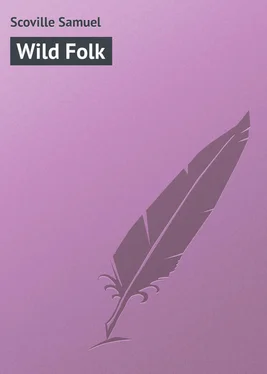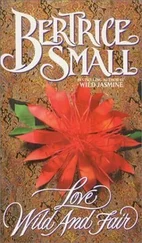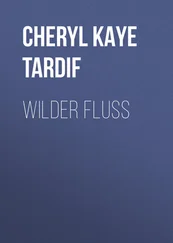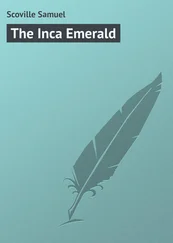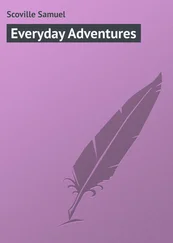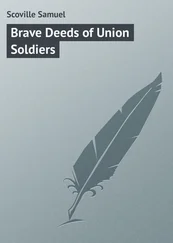Samuel Scoville - Wild Folk
Здесь есть возможность читать онлайн «Samuel Scoville - Wild Folk» — ознакомительный отрывок электронной книги совершенно бесплатно, а после прочтения отрывка купить полную версию. В некоторых случаях можно слушать аудио, скачать через торрент в формате fb2 и присутствует краткое содержание. Жанр: Природа и животные, foreign_prose, foreign_humor, Анекдоты, на английском языке. Описание произведения, (предисловие) а так же отзывы посетителей доступны на портале библиотеки ЛибКат.
- Название:Wild Folk
- Автор:
- Жанр:
- Год:неизвестен
- ISBN:нет данных
- Рейтинг книги:3 / 5. Голосов: 1
-
Избранное:Добавить в избранное
- Отзывы:
-
Ваша оценка:
- 60
- 1
- 2
- 3
- 4
- 5
Wild Folk: краткое содержание, описание и аннотация
Предлагаем к чтению аннотацию, описание, краткое содержание или предисловие (зависит от того, что написал сам автор книги «Wild Folk»). Если вы не нашли необходимую информацию о книге — напишите в комментариях, мы постараемся отыскать её.
Wild Folk — читать онлайн ознакомительный отрывок
Ниже представлен текст книги, разбитый по страницам. Система сохранения места последней прочитанной страницы, позволяет с удобством читать онлайн бесплатно книгу «Wild Folk», без необходимости каждый раз заново искать на чём Вы остановились. Поставьте закладку, и сможете в любой момент перейти на страницу, на которой закончили чтение.
Интервал:
Закладка:
After supper, the two started off on a hunting-trip, while the babies curled up in a round ball, to sleep until they came back. The gray hour just before dawn found the hunters crouched in the long marshy grass at the very tip of a point of land that ran into a little pond, which was ringed around with the stunted pines of the Barrens. Just as the first light showed in the sky, a flock of mallards, headed by a magnificent drake with a bright green head, swung in to feed. Never a sign nor sound betrayed the presence of the ambushers until the drake reached the edge of the shore. The startled bird had not even time for one quack before there was a splash, and old Father Coon had twisted that gay and gallant neck and was back on the shore again, with the quivering body thrown over his shoulder.
Part of the duck was washed and eaten then and there, and the rest was carried back to the den-tree, where the four little coons were taught to tear off little strips of the rich, dark meat, and to wash them repeatedly before eating. That first taste of flesh and blood forever barred them from the warm milky fountain which had been theirs before. From this time on, they had to hunt for themselves.
The very next night their education began. In the warm fragrant dusk, the whole family trotted in a long, leisurely procession through the underbrush, until they came to a broad bank of warm, white sand that overhung the deep waters of the stream which wound its silent way like a brown snake through the Barrens. Here, in a half-circle, the whole family crouched and dozed comfortably, with their pointed, striped noses on their forepaws, while the dusk deepened into the soft-scented, velvet blackness of a summer night. For long they stayed there, in the still patience which only the wild folk possess.
At last, over the tips of the pointed cedars the moon rose, and turned the white beach to silver. All at once, from where a sand spit sloped gradually into the water, sounded a tiny splash, and out into the moonlight crawled a monstrous, misshapen object. From under a vast black shell ridged with dull yellow a snaky neck stretched this way and that, surmounted by a fierce head, with a keen, edged beak and gleaming, cruel eyes which stared up and down the whole beach. It was a snapper, one of the largest of its kind, which weighed perhaps half-a-hundred pounds and would have filled a small washtub.
As the great turtle crawled slowly up the bank, the little coons crouched tensely, and turned their heads to see how the veteran hunters of the family proposed to attack this demon of the stream. As if asleep, both of them crouched motionless; for long ago they had learned that watchful waiting is the best policy when Mrs. Snapper comes out of the water of a spring night. Back and forth the monster crawled heavily, stopping to look and listen for minutes at a time. Satisfied at last that no danger threatened her on that lonely beach, she chose a little ridge of loose sand not ten feet from the raccoon family, and scrabbling with her hind legs and thrusting with her thick, strong tail in the warm sand, dug herself in. There she stayed all the night through, until she had laid a couple of hundred parchment-covered, cylindrical eggs, the greatest delicacy on the whole bill of fare of the hunting folk.
Just before dawn, she pulled herself heavily out of the hole she had dug, and the loose sand poured in after her, filling the cavity and covering the eggs that were hidden there. Not until the turtle had smoothed over the displaced sand and waddled back into the stream did the head of the raccoon family make a movement. He was no coward, but he knew too much to trust his slim paws or his pointed nose anywhere near Mrs. Snapper’s shearing jaws. When the brown water at last closed over her monstrous body, Father Coon led his waiting family to the bank and deftly uncovered the newly laid eggs, on which they feasted until sunrise sent them back to bed.
As the freshness of spring melted into the hot, green sweetness of summer, the education of the little Cleanlys went on rapidly. They soon became experts in breakfast-botany, and learned to dig for the nutty tubers of the wild bean, with its brown purple blossoms, the spicy roots of the wild sarsaparilla, with its five ashlike leaves and fuzzy ball of white blossoms, the wild ginger, the spatterdock, and a score or so of other pleasant-tasting wild vegetables. They learned, too, how to hunt frogs, and to grub up mussels, and to catch those little fresh-water lobsters, the crawfish, without getting their fingers nipped.
The Cleanly children made few mistakes, and hardly ever disobeyed their parents. There was a reason. Disobedience among the wild folk means death, and he who makes one mistake often never gets a chance to make another. The sister of the littlest coon was a sad example of this fact. She decided to become a reformer. It seemed to her that it would be pleasanter to hunt by daylight than after dark, so she tried it – once. On her first (and last) trip she met old Sam Carpenter, a Piny, who always carried a shotgun with him.
Of course, accidents will happen in wild-folk families just as among us humans, only in a wild-folk family, an accident is more apt to be fatal. It was the oldest of the three little Cleanlys, after the reformer had gone, who suffered first. He had been hunting in the wildest part of the five-mile circle, which the family used, and it was after sunrise when he scrambled out of the shallow pool where he had been frogging.
Suddenly from a dry dense thicket near by, there was a fierce hiss like escaping steam, and from a tangle of fern darted the mottled brown-and-white length of a great pine snake. Its curious pointed head, with its golden, unwinking eyes, shot forward, and the next second a set of sharp teeth closed on the soft nose of the small coon. Unlike the poison people, the pine snake has no fangs, and its teeth are used only to hold its prey for the grip of its choking, crushing coils. This particular snake was nearly eight feet long, and as thick around as a big man’s wrist. Luckily for the little coon, the thick bushes guarded him for an instant against the smothering coils.
Dragging back from the dreadful glare of the fixed, lidless eyes, he tried to tear loose, and squalled with all his might for his mother. Fortunately for him, she was not far away. Anyone who had ever watched Mrs. Coon climb carefully down a tree-trunk, or move deliberately through the thickets, would never have identified her with the furious figure which flashed through the bushes at the very first cry of the little coon. Before the great snake had time to draw its coils clear of the branches, or even to disengage its head to meet the attack, the raccoon was upon it, and sank her sharp teeth through the reptile’s spine just back of its head. At once the shut jaws gaped, and the little coon sprang back from the heavy body, which writhed and twisted and beat the bushes horribly in its death agony.
Mother Coon was always practical, with an open mind in regard to matters of diet, and while her cub whimperingly licked, with a long, pink tongue, a much-abused little nose, she began to strip off the speckled skin of her late opponent, and to convert it into lengths of firm, white meat on which the whole raccoon family fed full that night.
It was the youngest of the family who was the next victim. Again it was Mother Coon whose love and wisdom and courage outweighed chance on the scales of life and death. He had been exploring the shallows of the stream near a deserted cranberry bog. All the raccoon people like to follow the shallows of a stream, on the chance of picking up frogs, mussels, crawfish, and other water-food. A solitary rock off a tiny island, in shallow water close to the bank, is always a favorite spot for a hunting coon. Old Sam Carpenter knew all about raccoon habits, and also about one of their weaknesses.
Читать дальшеИнтервал:
Закладка:
Похожие книги на «Wild Folk»
Представляем Вашему вниманию похожие книги на «Wild Folk» списком для выбора. Мы отобрали схожую по названию и смыслу литературу в надежде предоставить читателям больше вариантов отыскать новые, интересные, ещё непрочитанные произведения.
Обсуждение, отзывы о книге «Wild Folk» и просто собственные мнения читателей. Оставьте ваши комментарии, напишите, что Вы думаете о произведении, его смысле или главных героях. Укажите что конкретно понравилось, а что нет, и почему Вы так считаете.
